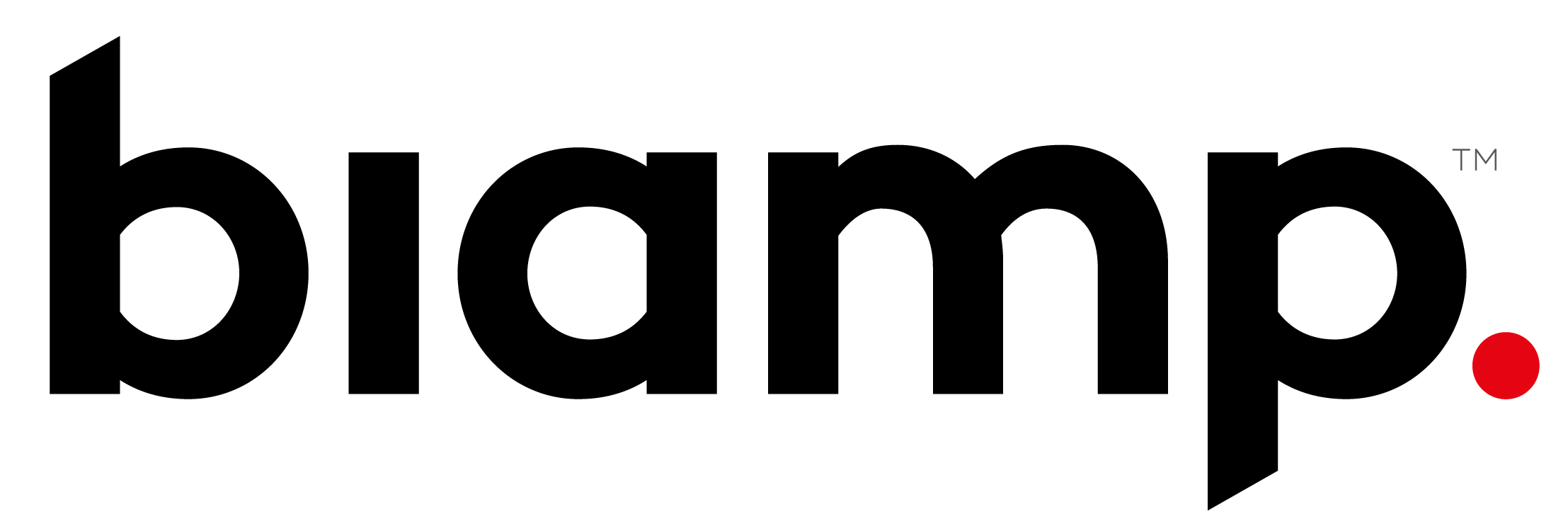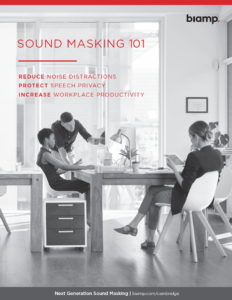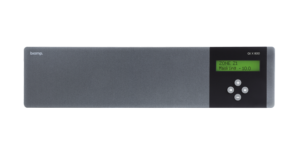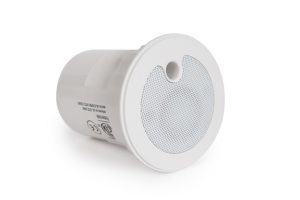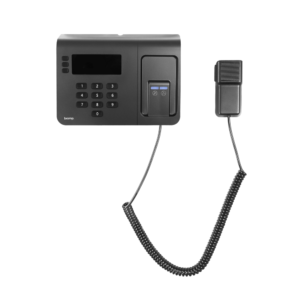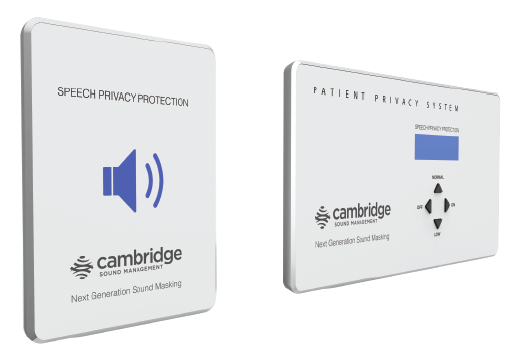Patient privacy complaints to healthcare providers and pharmacies are on the rise according to a recent ProPublica article. The data suggests that patient privacy has always been a problem and that complaints have risen mainly due to the introduction of an online complaint portal that now makes it easier for patients to file HIPAA complaints (see graph). 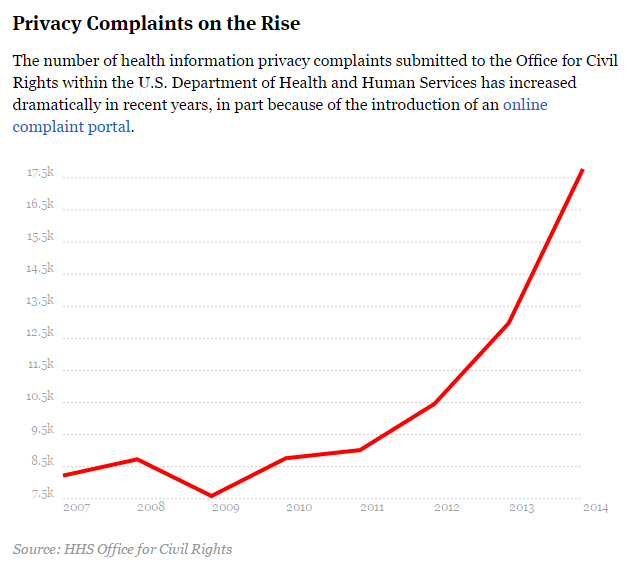 HIPAA, or, The Health Insurance Portability and Accountability Act, mandates how a healthcare provider is able to collect, store and use patients’ personal health information and requires providers to implement safeguards to protect patient privacy.
HIPAA, or, The Health Insurance Portability and Accountability Act, mandates how a healthcare provider is able to collect, store and use patients’ personal health information and requires providers to implement safeguards to protect patient privacy.
Many healthcare providers have taken safeguards to ensure that patient privacy is protected, such as encrypting data and having employees take mandatory privacy training, but the article suggests that it’s not enough. One reason for this might be the fact that healthcare providers rarely take steps to protect one of the most commonly experienced violations of patient privacy – medical information transmitted via speech and overheard by unintended listeners. In short, healthcare providers suffer from a speech privacy epidemic.
In most in most waiting rooms, reception areas, and pharmacy counters, speech privacy is virtually nonexistent. Patients often overhear conversations between office personnel and other patients. The article recalls one patient privacy complaint a major drugstore chain encountered where a patient was “upset because a pharmacist had yelled personal information across the counter.” These situations are hardly rare – anyone who has been in a doctor’s office waiting room or a pharmacy line can attest to the fact that conversations between staff and caregivers are rarely private and easily overheard. In addition to being a HIPAA violation, a lack of patient speech privacy fosters a negative patient experience where they feel uncomfortable, embarrassed, and potentially less likely to share medical concerns.
HIPAA complaints are fielded by the Office of Civil Rights (OCR). As part of their investigation, ProPublica requested dozens of letters sent by the office to health providers detailing the allegations and how they were resolved. Not providing sufficient speech privacy was a common refrain:
“common complaints included giving drugs to the wrong patients, speaking too loudly when discussing health information in front of customers, and faxing medical information to the wrong places (including to random strangers).” (Emphasis added)
Many pharmacies make the list of companies with multiple HIPAA complaints, as do large healthcare providers. Providers try to take HIPAA violations seriously as violators can be subject to government fines as well as litigation from angry customers.
So how can healthcare providers protect speech privacy at their locations and therefore reduce HIPAA violations and create a more comfortable patient experience? One solution is to install a sound masking solution in the area where medical information is most likely to be overheard. Cambridge Sound Management’s Qt Patient Privacy System provides a unique sound masking solution specifically for medical office and pharmacy environments.
The Qt Patient Privacy System consists of a control module, two lighted privacy signs, and a series of direct-field sound masking emitters. The intuitive control module can be installed in a reception desk, behind a pharmacy counter, or mounted to a wall. Once turned on, the emitters installed in the ceiling add a low level of background sound into the space that covers up human speech and makes conversations less intelligible. Lighted privacy signs turn on to indicate the system is running, and let patients know that what they’re saying is being protected.
Patient privacy will never be possible with 100% certainty but the Qt Patient Privacy System provides healthcare providers with a useful tool for increasing customer satisfaction and reducing HIPAA violations in places where medical information is discussed.
